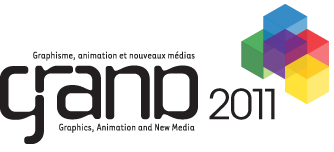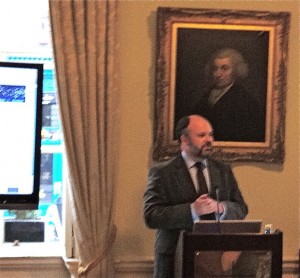Today we held an event at the University of Alberta around developing a new form of collaboration. Peter Robison from the University of Saskatchewan organized the day’s discussion and we had participants from across the country, though most were from the medieval editing community in Western Canada.
Peter started us off by arguing that we need intelligent documents and the way he is doing that is working with RDF. He believes “the interface is the enemy” of researchers trying to study across documents. He believes that XML/TEI isn’t enough; we need intelligent documents that carry assertions that can help other users of the data. I’m intrigued by this idea of “assertions” and I know Allen Renear has been working on what can be said about a document.
Dan O’Donnell argued that we should think about interchange rather than interoperability. He pointed out that most people want access to the data of others to do their own analysis and repurpose for their own. Brent Nelson talked about his Digital Donne project and bringing traditional researchers into digital projects. He then talked about his cabinet of curiosities project. Allison Muiri talked about her Grub Street project and legal issues around involving a larger community.
One issue that we went back and forth on was the place of interface. I’m convinced that the idea of the separation of form and content is just one assertion among many. In some situations it makes sense to talk about separating interface, in others it doesn’t.
One thing we are all struggling with is essentially the human processes. Computers are really not the issue, what we need is support for changing the research culture:
– How do you get participation?
– How do you encourage openness to interchange?
– What will our universities allow us to do?
– How will we get credit for what we are doing?
– How can we run production services or who can run them for us?
Yin Liu talked about how we are here because we have failed. This was in response to Peter’s claim that we were here because we had all succeeded. Yin also said that she would like to no longer list herself as a digital humanist but as a medievalist. The time may come when we are all digital humanists – that, of course, is the culture change we are interested in.
Meagan Timney talked about linking – linking of people, linking of digital humanities to traditional disciplines, linking to training of undergraduates. Dean Irvine talked about how to pitch editing outside of the humanities. Training became a keyword – editing is a way to train students in informatics.
We ended by brainstorming about a partnership that could bring together many of the players in Canada while providing an inclusive culture for new scholars. What could a new type of organization look like?



